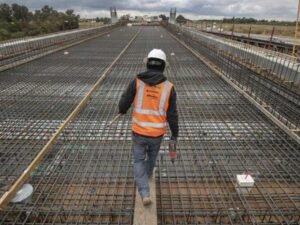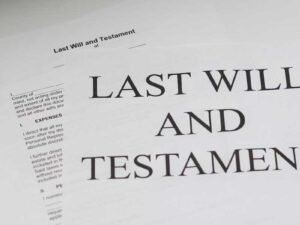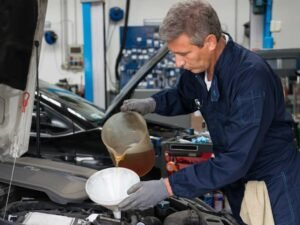Your home is more than just a structure; it’s an investment that reflects years of hard work, financial planning, and emotional attachment. The roof—your home’s first line of defense against wind, rain, heat, and other environmental challenges- is among the most critical elements of this investment. Yet, many homeowners prioritize cost over qualifications regarding repair or replacement. Hiring unlicensed or uninsured roofers may save a few bucks up front, but it can lead to costly consequences.
We will explore how hiring licensed and bonded roofing professionals safeguards your home, offering legal, financial, and structural protection that far outweighs any perceived short-term savings. Companies like Apex Restoration and Roofing exemplify how proper credentials and accountability provide long-term value and peace of mind. Understanding what it truly means to hire someone who is licensed and bonded can be the difference between a resilient roof and a financial nightmare.
How Licensing and Bonding Add Real Protection to Roofing Services
Legal Accountability and Regulatory Compliance
Hiring a licensed roofer means working with someone authorized by local or state authorities to do roofing work. This isn’t just a piece of paper—it’s a sign that the individual or company has met specific criteria such as passing technical exams, possessing adequate insurance, and staying up to date with building codes. For homeowners seeking roofing in Brooklyn, choosing a licensed professional ensures your project complies with local regulations, meets safety standards, and avoids costly legal or structural issues down the line. Licensing ensures that the contractor understands local laws and regulations, which means your roofing project will comply with safety standards and zoning requirements.
Unlicensed workers might ignore or be unaware of such codes, leading to work that may not pass inspection. If that happens, you’re not only on the hook for corrections but may also face legal penalties. More importantly, improper installation can cause future roof failures, resulting in water damage, mold, or insulation loss. Licensed contractors, on the other hand, are bound by the guidelines of their trade and liable for maintaining those standards. If they violate them, their license can be revoked, giving homeowners a layer of assurance and legal recourse that isn’t available with unlicensed labor.
Bonding Safeguards Financial Integrity
A bonded roofer offers financial protection that most homeowners don’t fully appreciate until it’s too late. A bond is a legal agreement involving the roofer, a bonding company, and you, the homeowner. If the roofer fails to complete the job, does it poorly, or causes damage they refuse to fix, the bonding company will step in and cover the cost up to the bond amount. This means you won’t be left paying out of pocket for someone else’s mistakes or negligence.
In contrast, working with an unbonded contractor provides no financial safety net. If they take your deposit and disappear, deliver substandard work, or vanish before finishing the project, you may have little to no recourse. Bonding shows that the roofer is serious about their work and is backed by a third-party company willing to put money on the line to guarantee they perform according to the contract. This level of financial assurance is not just comforting—it’s critical when dealing with something as structurally vital and costly as a roof.
Insurance Protects You from Unexpected Liability
Licensed and bonded roofers are typically also insured, a vital layer of protection often overlooked by homeowners. Roofing is inherently dangerous, and accidents can happen even with experienced crews. If an uninsured worker falls off your roof or damages your property during the job, you could be held legally and financially responsible. Insurance—especially liability and workers’ compensation coverage—ensures that you aren’t footing the bill for medical expenses, property repair, or legal fees in the event of an accident.
Without it, you’re exposed to lawsuits or costly claims that can severely impact your finances. Insured roofers protect not only themselves but you as well by absorbing those risks. They take responsibility for their workers, their tools, and the outcomes of their work. This risk mitigation is essential for safeguarding your investment, especially given the high stakes of roof repairs or replacements that can reach the tens of thousands, depending on the project’s scope.
Workmanship Quality and Long-Term Durability
One of the clearest signs of a reliable roofer is their license and bond status, which indicate that they’re in this business for the long haul. Unlike unverified or transient contractors who may disappear after finishing—or abandoning—a job, licensed and bonded professionals tend to value their reputation and work quality. They have a legal identity and a registered business and often offer warranties for their work. These warranties can range from one to ten years, covering materials and labor.
If issues arise, a licensed roofer is more likely to address them promptly to maintain their standing and avoid penalties or claims against their bond. You also gain peace of mind knowing the work has been completed according to industry standards, reducing the likelihood of recurring leaks, shingle loss, or structural compromise. In other words, quality work from a credentialed roofer can significantly extend the life of your roof, offering long-term savings and less stress.
The roof above your head isn’t just necessary—it’s a vital part of your home’s structure and value. Hiring a licensed and bonded roofer isn’t merely a matter of following regulations; it’s a strategic decision protecting your investment from legal, financial, and structural risks. By ensuring the contractor is properly certified, insured, and backed by a bond, you’re gaining more than roofing services—you’re securing peace of mind, higher work standards, and long-term property value.
We’ve outlined how legal accountability, financial protection, insurance coverage, workmanship quality, and resale advantages align with hiring professionals with proper credentials. When your home is likely your most valuable asset, cutting corners on something as critical as roofing is never worth the gamble. Instead, prioritize protection and reliability by trusting those who meet the standards your investment deserves.










